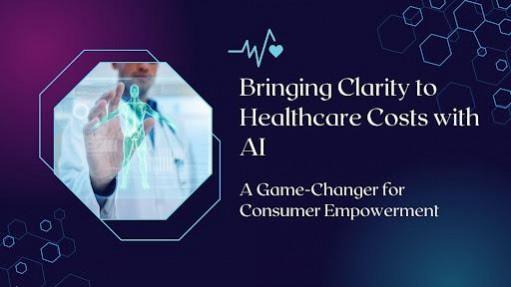
In an era where healthcare costs continue to spiral out of control, innovative solutions have emerged to provide much-needed transparency and ease the financial burden on consumers. One such development is an AI-powered platform, which leverages advanced machine learning techniques to give personalized medical cost estimates, empowering patients with detailed and accurate information. This article, based on the work of Sai Deepak Talasila, outlines how artificial intelligence is poised to revolutionize healthcare pricing and bring significant benefits to the system.
Tackling Healthcare's Most Pressing Issues
The healthcare system's opaque pricing often leads to unexpected medical bills and delayed care, leaving patients overwhelmed. High costs and rising medical debt further complicate this landscape. An AI-driven platform addresses these issues by providing personalized cost estimates, enabling provider price comparisons, and offering negotiation support. This innovative solution helps patients plan their medical expenses, reducing financial surprises.
Harnessing Big Data for Personalized Estimates
The platform uses big data analytics and machine learning to compile medical cost information from sources like hospital price lists, insurance databases, and user-reported costs. It provides highly personalized estimates based on location, treatments, and insurance details, delivering results within seconds. A key feature is its ability to account for price variability, offering confidence intervals for complex procedures. This helps patients receive more accurate and transparent cost information, crucial in a system where prices can fluctuate by up to 200% in the same region.
Comparing Providers for Better Decision-Making
The platform enables users to compare healthcare providers based on cost, quality of care, waiting times, and patient reviews, empowering informed decisions. This transparency fosters competition among providers, potentially lowering prices. Additionally, the AI-powered negotiation tool helps users reduce medical bills, with beta testers reporting an 18% average expense reduction, making healthcare more affordable.
Breaking Down Complex Data for Easier Understanding
The platform excels in simplifying complex healthcare pricing data using natural language processing (NLP) to standardize and categorize information for easier understanding. By leveraging advanced transformer-based models, it delivers accurate, standardized cost estimates from various data sources. Additionally, the use of SHAP (SHapley Additive exPlanations) values provides users with transparency on how estimates are calculated, enhancing trust and user confidence in the platform's cost estimation process.
Overcoming Challenges and Ensuring Data Privacy
The platform faces challenges in data privacy and accuracy. To mitigate these, it implements advanced security measures such as encryption and blockchain, ensuring compliance with industry regulations. Maintaining accurate pricing data is also critical, addressed through real-time data validation and federated learning, which keep models updated with the latest trends. This approach ensures consumers receive the most accurate and current information, even as healthcare costs change.
Future Directions: Expanding the Scope of AI in Healthcare
The platform's potential in healthcare is vast, with future plans to integrate electronic health records (EHRs) for more personalized cost predictions and develop predictive health spending models. These enhancements will help individuals plan for long-term costs, considering lifestyle and health factors. As AI evolves, its role in healthcare will expand, optimizing systems and reducing costs. Further integration into insurance selection and predictive healthcare could lead to significant savings in medical bills and premiums for consumers.
In conclusion, Sai Deepak Talasila's AI-driven platform represents a transformative leap in healthcare cost transparency, providing patients with personalized cost estimates and facilitating provider comparisons. By addressing key challenges like data privacy and accuracy, the platform empowers consumers to make informed healthcare decisions while potentially reducing medical bills. With plans to integrate electronic health records and develop predictive spending models, this innovation is poised to further optimize healthcare costs and enhance access to affordable care, marking a significant step forward in the industry's evolution.

















